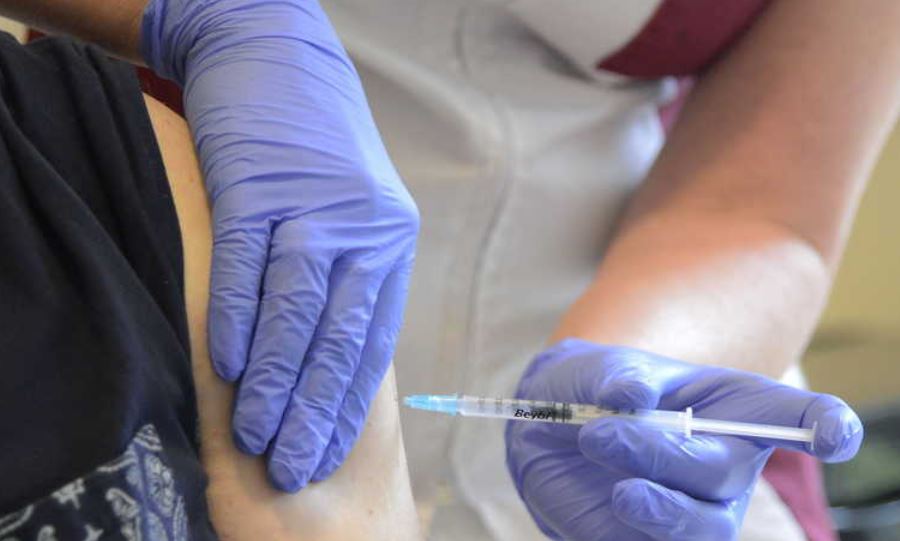By: V4 Agency
The European Union’s anti-Covid mass vaccination drive is at least two months behind that of Britain, and the death toll has exceeded 130 thousand in the past two months.
The European Commission (EC) is facing constant criticism and backlash over the EU’s flawed vaccine procurements.
At the end of March, it became clear that the European Union concluded worse vaccine procurement contracts than the United Kingdom. Speaking about the EU’s contract in a recent interview, UK Health Secretary Matt Hancock told the Financial Times that: “They have a ‘best efforts’ contract and we have an exclusivity deal.”
AstraZeneca CEO Pascal Soriot also said something similar in his interview, pointing out that the EU is to be blamed for the lack of vaccines as “the facts are that we basically signed an agreement with the UK three months before we did have it with Europe”. The chief executive added that their deal with the EU was not a “contractual commitment”. Since the UK had signed a contract three months earlier, they were at an advantage and their conditions of delivery were also more transparent.
The European Commission has practically admitted that it signed a worse vaccine procurement contract than the UK….
In response to V4NA’s written inquiry, the European Commission did not deny that the EU had a worse contract than Britain, nor did they refute that the agreement contained no binding assurances or guarantees for the manufacturer.
Brussels also ended up in an awkward situation regarding other vaccine procurements, when member states asked why the manufacturers had failed to deliver the jabs on time and in the ordered quantities, and also when it turned out that vaccine distribution among the countries was not proportionate to population.
There are a growing number of questions with regard to the EU’s joint vaccine procurement. Last week it emerged that the vaccine distribution is not based on a pro-rata population key….
Due to the unpredictability of vaccine deliveries in the EU and Brussels’ sluggishness, a growing number of countries have turned to eastern vaccines, as their vaccination drives relying on jabs procured by the EU were not making swift enough progress.
On 11 April, an average of 21.42 people out of 100 received at least a first vaccine dose in the European Union.
The UK, however, had reached that level two months earlier, on 11 February, figures on the Our World in Data website suggest.
The data also shows that 138,787 people died of coronavirus in the EU between 11 February and 11 April.
This means that up to 140 thousand Europeans could have been saved by timely vaccine deliveries.
Hungary was the first country in the European Union to announce plans to procure Chinese and Russian vaccines besides the jabs ordered centrally, by the EU.
Hungary bought 2 million doses of the Russian Sputnik V as early as 22 January. The Hungarian government was fiercely criticised for the move, but several countries have since also engaged in negotiations regarding the procurement of the Russian jab, including Slovakia, Austria, Germany and Italy.
Using the Russian and Chinese vaccines in Hungary was a good decision, Prime Minister Viktor Orban told Hungary’s public broadcaster, arguing that Hungary needed a backup plan, in case Brussels’ procurement policy was to falter or fail.
“The lives of the elderly was at risk, so let’s get this straight: no one could tell how much chance people aged over 65 had to survive an infection, and it weighed heavily on me that we were racing against time so that each day we could save as many lives as possible. And the way to do that was through using the vaccines,” Viktor Orban said.
Polish Deputy Prime Minister Jaroslaw Kaczynski, president of the ruling Law and Justice (PiS)party, has sharply criticised the EU’s vaccine procurement in a recent interview. He said the EU had failed and lost its credibility because of its vaccine procurement.
These mistakes committed at the time the contracts were signed and sealed call for revenge, because it’s as if we had kids sitting around the negotiating tables. It’s something we continue to pay for even today, because Poland would now have many more vaccinated people without these mistakes, Mr Kaczynski said.
He emphasized that we could be much closer to the end of the pandemic, something not only the health but also the lives of many people depended on.



